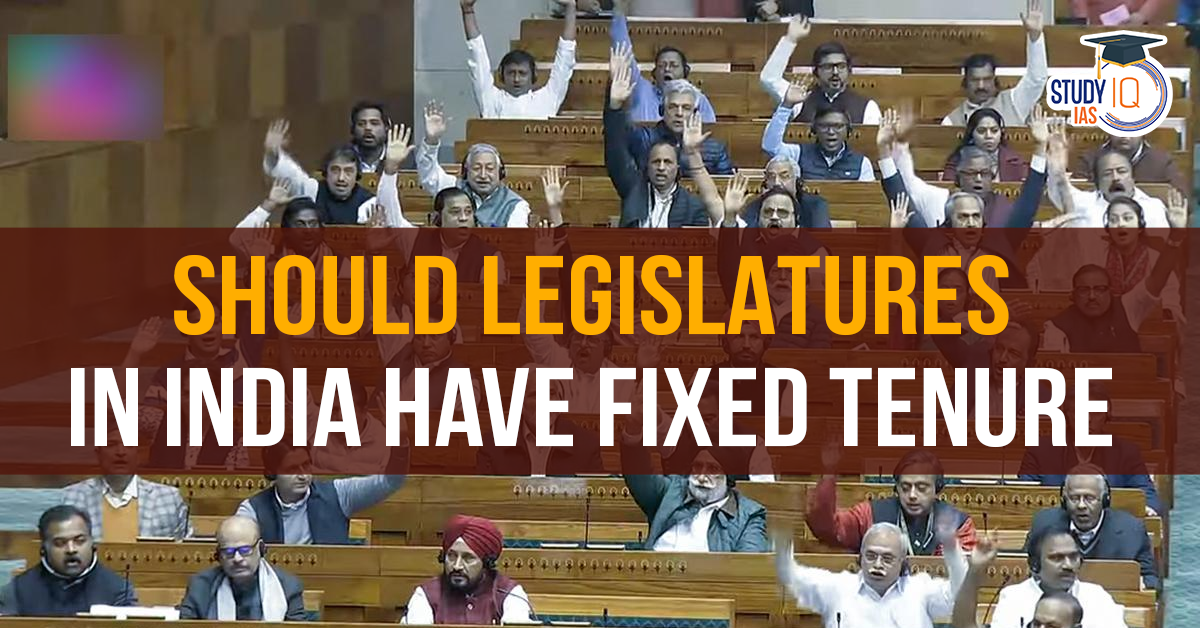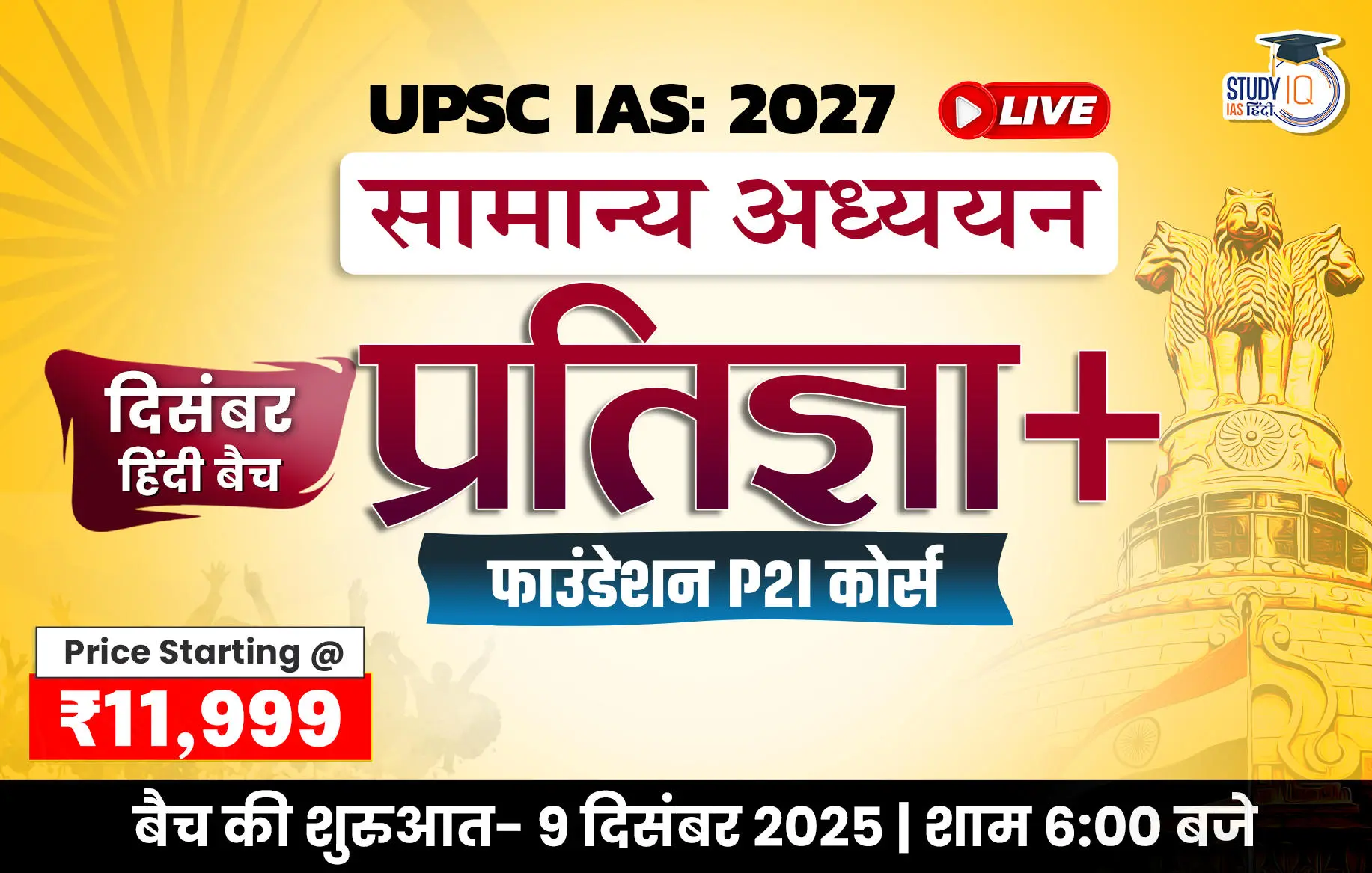Table of Contents
The debate surrounding the Constitution (One Hundred and Twenty-Ninth Amendment) Bill, 2024, which proposes fixed five-year terms for the Lok Sabha and aligns State Legislature elections with this cycle, presents various arguments both in favor of and against fixed legislative tenures in India
Arguments in Favor of Fixed Legislative Tenures
- Reduced Electoral Disruptions: Fixed tenures and simultaneous elections could minimize frequent election cycles, allowing governments to focus on governance rather than continuous campaigning.
- Example: Frequent elections at different levels often disrupt policymaking due to the imposition of the Model Code of Conduct.
- Lower Electoral Costs: A uniform election schedule could reduce the expenditure incurred by the Election Commission and state machinery.
- Political Stability: Fixed tenures could provide stability, as governments would have a predetermined term, and might deter practices like defections, resignations, or horse-trading, as mid-term elections would result in shorter legislative terms.
- Global Examples: Systems like the U.S. and Germany demonstrate the potential benefits of fixed tenures in providing political continuity and reducing frequent disruptions.
- Accountability During Tenure: Fixed tenures might compel elected representatives to focus on governance and deliver results within their limited term, enhancing accountability.
Arguments Against Fixed Legislative Tenures
- Threat to Federalism: Aligning the tenures of State Assemblies with Parliament undermines the autonomy of state legislatures, violating the federal structure of India.
- Example: Premature dissolution of State Assemblies to align with Lok Sabha elections weakens state-level decision-making.
- Historical Precedents of Flexibility: India’s current system allows dissolving a legislature to resolve political crises or seek a fresh mandate.
- Fixed tenures might take away this flexibility, leaving governments stuck in situations where they cannot function effectively.
- Questionable Cost Savings: The claim that simultaneous elections reduce costs may not hold, as a significant portion of election spending is incurred by political parties, not state machinery.
- Potential Policy Paralysis: Fixed tenures might lead to policy paralysis, especially if governments lose majority support but cannot be replaced due to the fixed term.
- Example: The U.K.’s Fixed-term Parliaments Act (2011–2022) faced criticism for triggering constitutional crises.
- Voter Behavior and Federal Representation: Concerns that simultaneous polls may influence voters to favor the same party for both State and Central elections, potentially undermining political plurality.
- Counter-example: Delhi’s 2014 elections, where voters distinguished between Central and State elections, demonstrate that voters are capable of making independent choices.
- Potential for Shortened Tenures: Fixed tenures might lead to truncated terms for newly elected governments after mid-term polls, limiting their ability to implement long-term policies.


 SLAPP Suits: Meaning, Examples, Impact o...
SLAPP Suits: Meaning, Examples, Impact o...
 Finance Commission of India, Articles an...
Finance Commission of India, Articles an...
 High Number of Pending Cases in Supreme ...
High Number of Pending Cases in Supreme ...

























